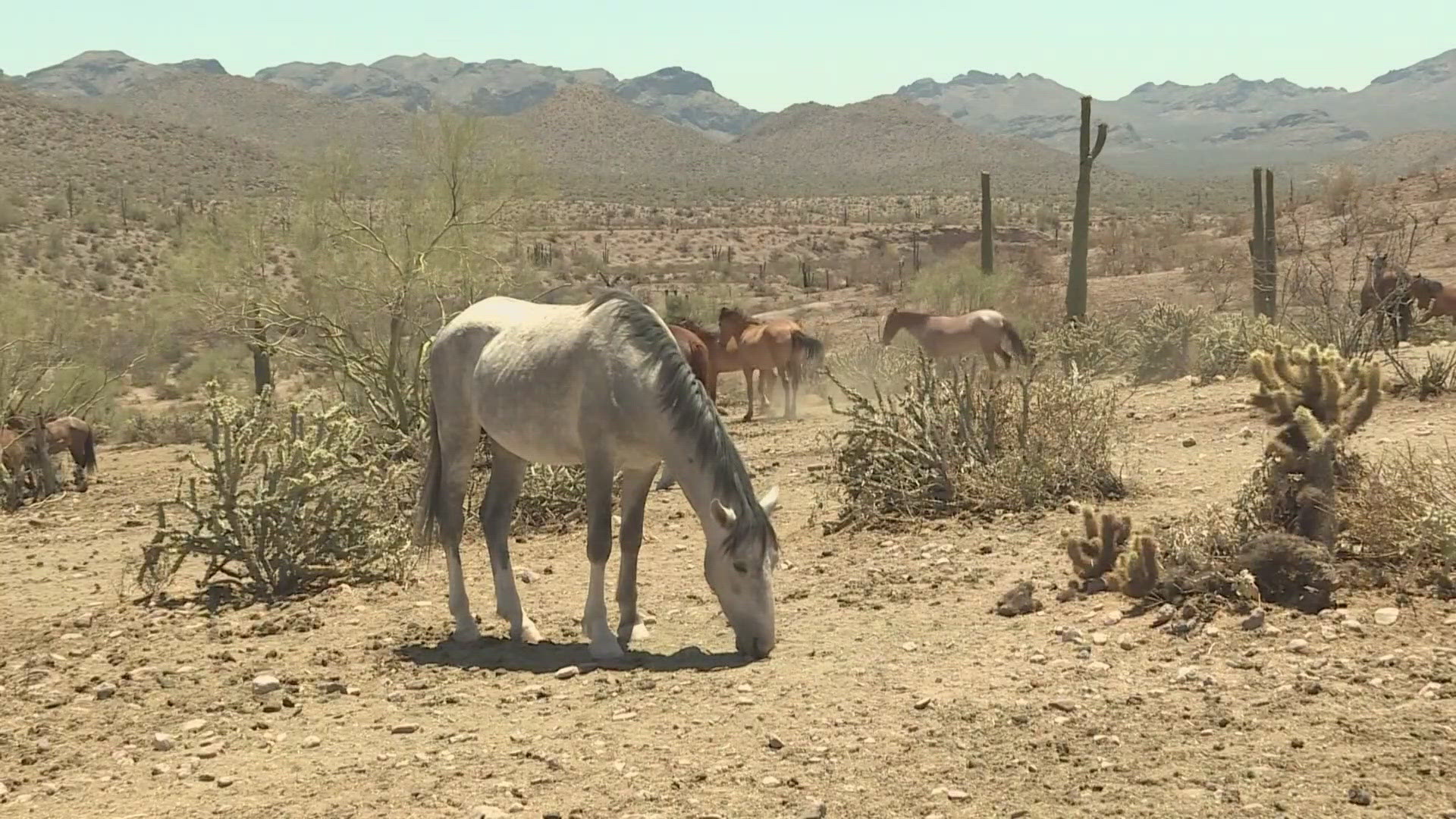MESA, Ariz. — They are a staple when adventuring down the Salt River.
Wild horses cross the river in herds at various points. It's a highlight for most when they visit the Salt River and chances are you'll see them.
A lot of them.
The Salt River wild horses are beautiful and iconic — but also controversial. Environmental groups claim the population of about 400 wild horses roaming the 20,000 acres of the Tonto National Forest is a problem that needs to be addressed.
It's a controversy that has spawned a second lawsuit filed against the U.S. Forest Service by environmental groups like the Center for Biological Diversity. Co-founder Robin Silver said the horses are devastating the land by overgrazing which is has forced some other animals in the area to leave. He also said having that many horses is not viable for the land or horses.
"It's an area that's not going to stay sustain more than a few horses," said co-founder Robin Silver.
Silver also said because of the lack of natural food for the horses, it lead to the horse management group that cares for them to artificially feed them.
"If the horse advocates were not artificially feeding them, we would have mass starvation," he said.
This is the second lawsuit filed by the Center for Biological Diversity against the U.S. Forest Service after the previous complaint was dismissed. Silver said the reason for the dismissal was because of the intergovernmental agreement at the center of the complaint was going to expire. That agreement Silver claims has since been re-signed so they are able to move forward with litigation.
According to Silver, the complaint goes after the defendants for not coming up with an updated plan for herd population.
"The state needs to come up with a science-based management plan, one that won't continue perpetuating destruction in the area," he said.
Silver made it clear, they aren't trying to get rid of the horses but to reduce the population significantly.
Going from about 400 to fewer than 100.
The environmentalist said to reduce the population, returning the horses to tribal land, adoption and contraceptive administration would help.
Simone Netherlands, the president of the Salt River Wild Horse Management Group, said they are already reducing the population by contraceptive measures. She claimed they've gone from 100 foals a year to about two a year.
"It actually lowers the population without ever removing one horse and that's the humane way to do it," Netherlands said.
She also said the allegations in the lawsuit are overexaggerated. That the wild horses aren't hurting the land but are actually helping by preventing over growth that could fuel fires.
Believing that removing the horses will create more problems.
"They're really Arizona's treasure, " Netherlands said. "So they shouldn't be treated like trash."

